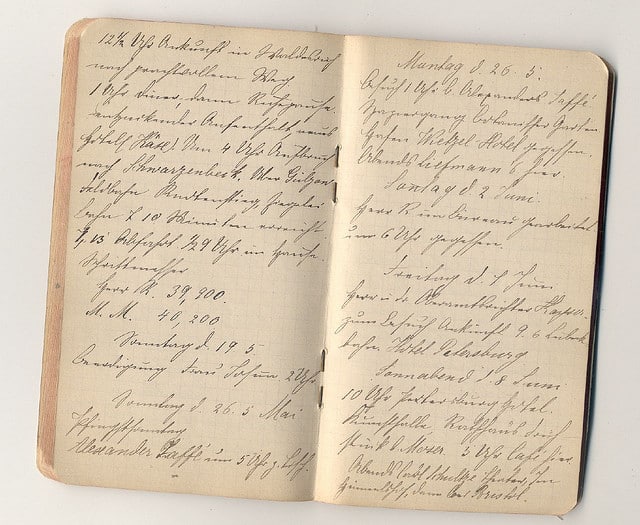I’m not ready. I’m not good enough. That’s not my book to write. That book’s already been written. What if they hate it? I’m scared.

At The Write Practice, we publish a new article each day designed to help writers tackle one part of their writing journey, from generating ideas to grammar to writing and publishing your first book. Each article has a short practice exercise at the end to help you immediately put your learning to use.
Check out the latest articles below or find ones that match your interest in the sidebar.
And make sure to subscribe to get a weekly digest of our latest posts, along with our free guide, 10 Steps to Become a Writer.

I’m not ready. I’m not good enough. That’s not my book to write. That book’s already been written. What if they hate it? I’m scared.

In our online conversation two weeks ago, I exhorted The Write Practice community to answer three fundamental questions about their writer’s soul, and asked you to tell me what you need help with the most.
The one thing that most of you called out for, overwhelmingly, was time. Well, you’re in luck because that is my all-time (pun intended) favorite fascination. So much so that I wrote a book and am running a seminar series on it.
The burning question is, how do we find more time in our ridiculous schedules to write? How can we expand, stretch, push the limits of the time we do have? How do we bleed out those extra seconds, minutes, and hours we’re having to spend sitting in traffic/doodling in desperation in mind-numbing company meetings/frozen in line at the grocery store/stuck in the unavoidable time warp of the post office?

Last week I attended a conversation with Nicholas Sparks and local D.C. reporter at the historic Sixth and I. There was a lot of movie talk and name dropping (think, “oh that Ryan and Rachel”), but Sparks was an excellent story teller and engaging speaker. I learned a lot. I would say that the writing tips he shared were the highlight of the experience, but that would be the moment when a girl announced that she had “The Notebook” tattooed on her wrist.
Anyhoo, you want to write like Nicholas Sparks? Below are four tips on how to do it.

What is a mantra? Why use one? What are you even talking about?
Let me start at the beginning. Once you do something for a while you tend to morph into some level of expert. You may not feel it in your gut, but others view you that way. Here’s my example: I’ve been writing for a couple years. I’m getting better and better…I hope. Out of the blue friends started referring wannabe writers to me. Cool.
But I will.
You will always encounter impediments to your writing. You will regularly want to procrastinate. You will often want to distract yourself. You will sometimes even want to quit writing altogether.
This is normal. This is the work. If it was easy, everyone would be great writers with dozens of books to their names. But of course, it’s not easy. You will do it anyway.
![Public Speaking [writing prompt]](https://thewritepractice.com/wp-content/uploads/2013/10/public-speaking.jpg)
Your main character must give a public presentation. Is he nervous? What is she going to say? How does he imagine the audience will act? How does the speech go?
Write about public speaking for fifteen minutes. When you’re finished, post your practice in the comments section. And if you post, be sure to give feedback on a few practices by your fellow writers.

I love simplicity. In my home. In my closet. In my brain. No surprise, then, that I am a big fan of the Six Word Memoir project by Smith Magazine, an online magazine devoted to storytelling. When I read or listen, I want to know the point. I also write for young children, so I’m well-trained in editing the superfluous. Less than 500 words spread over thirty-two pages is the norm.
Part of storytelling is creating something memorable. You want your readers to remember your characters, the world that you’ve created, and what happens to those characters in that world. This is nothing new; back in the earliest days of storytelling, before we had the written word, those who were responsible for the oral tradition had to make sure it was preserved.
One of the most effective ways to enforce memory is through repetition, and so one of the most common storytelling techniques was born: the Rule of Three.

I asked a friend yesterday if she mainly wrote out of inspiration, or if she’d mastered the discipline of sitzfleisch. She was quick to say, “I write when I’m inspired.”
Another friend finally finished her manuscript after years of sporadic visits from the muse, claiming that trying to work without the presence of magic was to produce sheer mediocrity.
If you want to be a writer, you should probably be blogging, Facebooking, twittering, and so forth. And if you've already started building your writing platform, you should probably be using each of these platforms better. But building a platform can be exhausting....